
Find Help
More Items From Ergsy search
-

How does technology help in enhancing transparency in banking fees?
Relevance: 100%
-
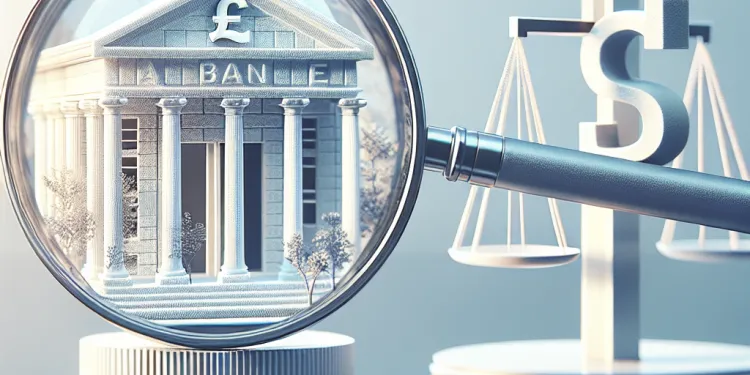
Why is there a call for greater transparency in banking fees?
Relevance: 89%
-

What initiatives are in place to address banking fee transparency?
Relevance: 86%
-

Calls for Greater Transparency in Banking Fees as Complaints Rise
Relevance: 84%
-
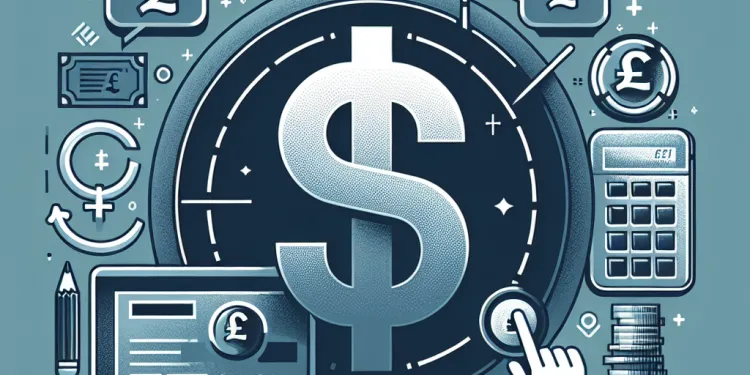
How can banks improve transparency regarding their fees?
Relevance: 83%
-
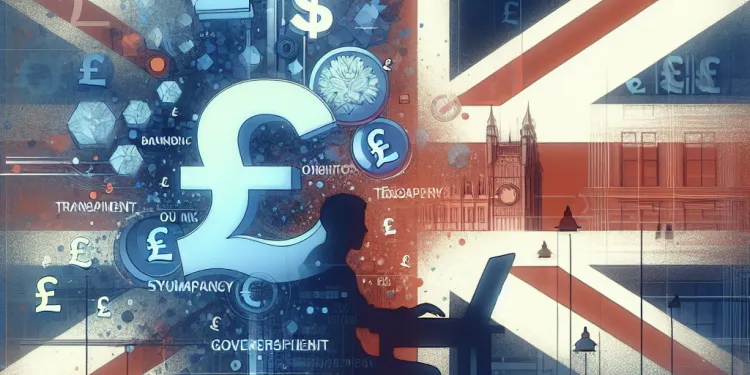
How can government policies influence transparency in banking fees?
Relevance: 77%
-
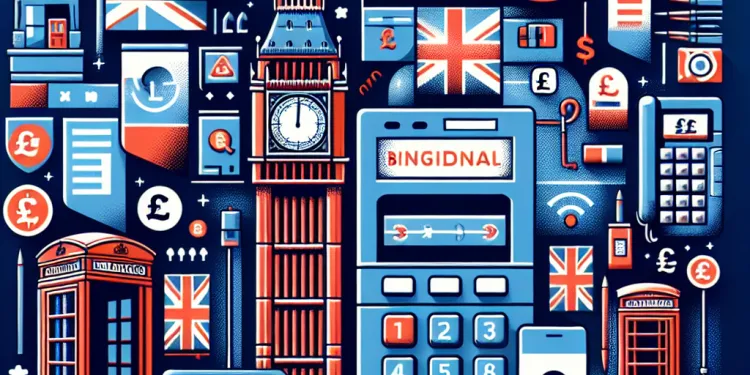
What actions are consumer rights groups taking regarding banking fee transparency?
Relevance: 74%
-
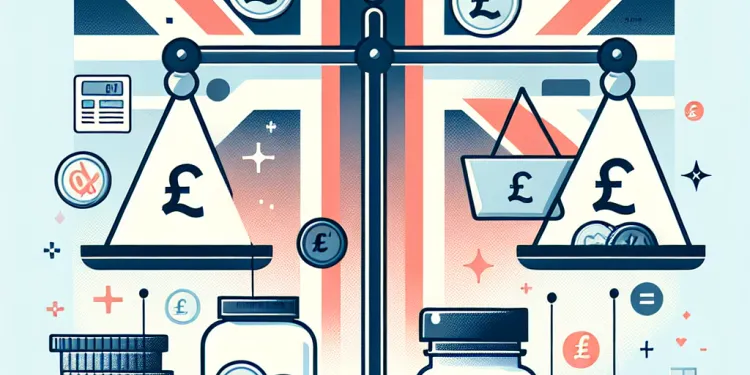
What role do regulatory bodies play in fee transparency?
Relevance: 66%
-
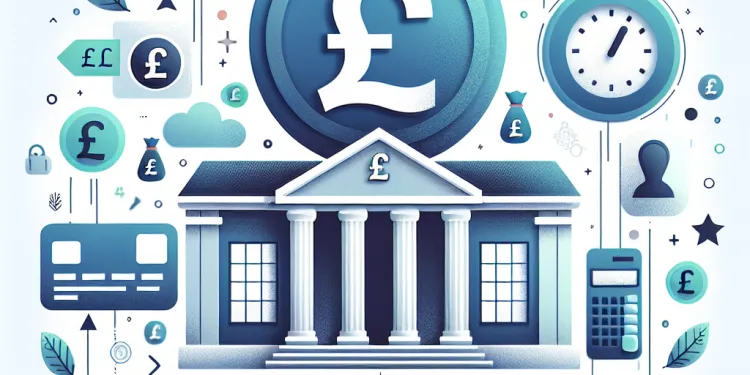
How do banking fees impact financial inclusion?
Relevance: 61%
-
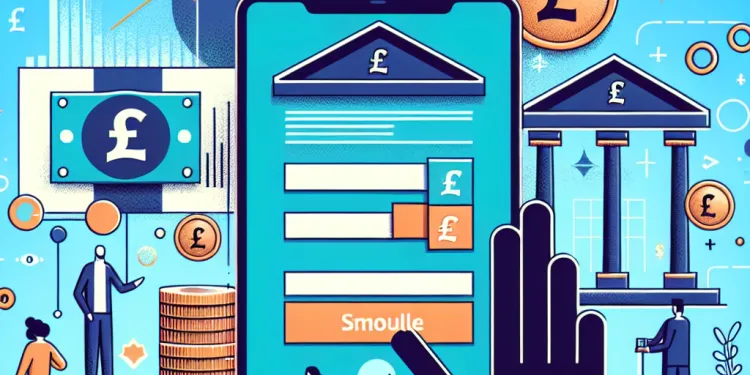
What feedback do customers give regarding banking fees?
Relevance: 59%
-
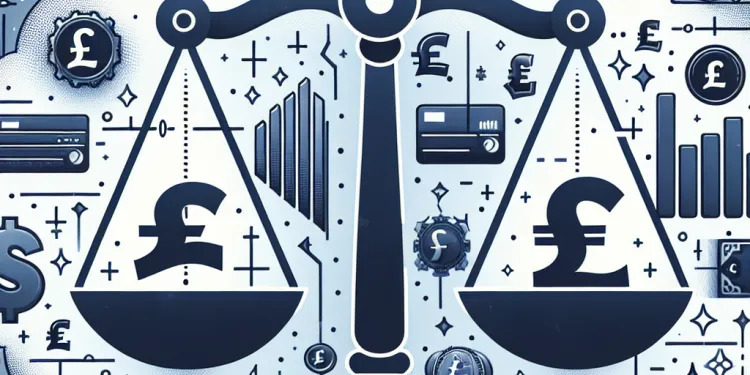
What are the consequences for banks not complying with transparency standards?
Relevance: 59%
-

Are there specific banking services more prone to opaque fee structures?
Relevance: 58%
-

Do online banks have lower fees than traditional banks?
Relevance: 56%
-

What role do customer service representatives play in fee transparency?
Relevance: 55%
-
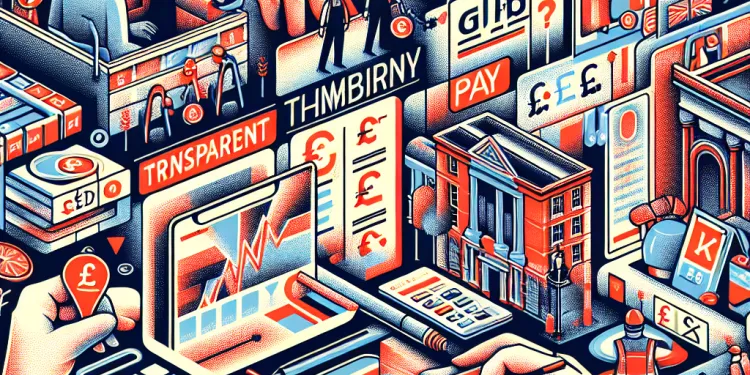
Do gig workers have the right to transparency in pay and fees?
Relevance: 54%
-

Why are some banking fees unexpectedly high?
Relevance: 54%
-

Do all banks have the same fee structures?
Relevance: 54%
-
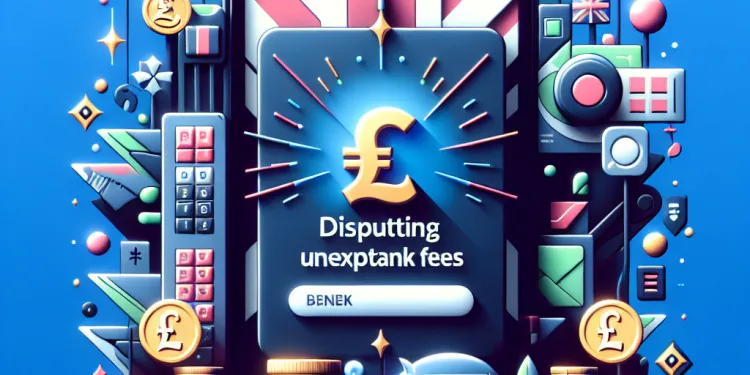
Can customers dispute unexpected banking fees?
Relevance: 54%
-

What fees should I avoid when choosing a new bank?
Relevance: 47%
-
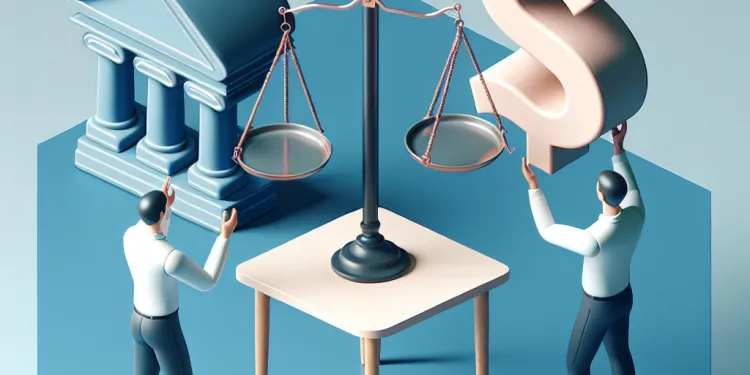
How can disputes over banking fees be resolved effectively?
Relevance: 47%
-
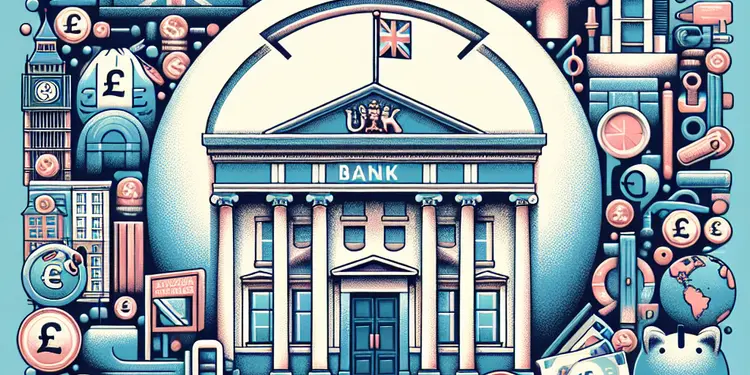
What fees should I avoid when choosing a new bank?
Relevance: 47%
-

What are some examples of hidden fees in banking?
Relevance: 47%
-

How can consumers protect themselves from hidden banking fees?
Relevance: 46%
-
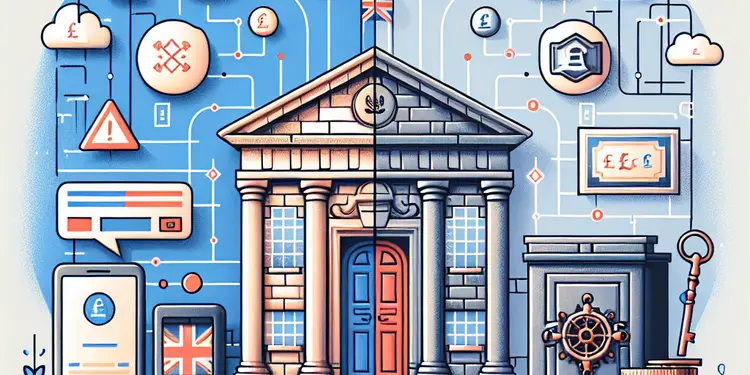
Are online banks cheaper than traditional banks?
Relevance: 46%
-

Are there any hidden fees with Monzo or Revolut?
Relevance: 45%
-
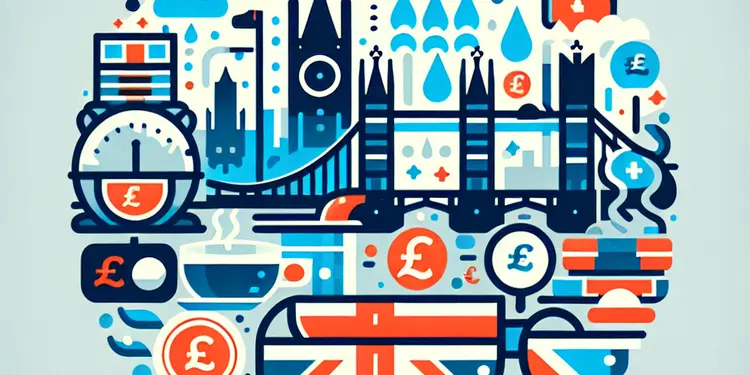
Are there any hidden fees I should be aware of?
Relevance: 42%
-
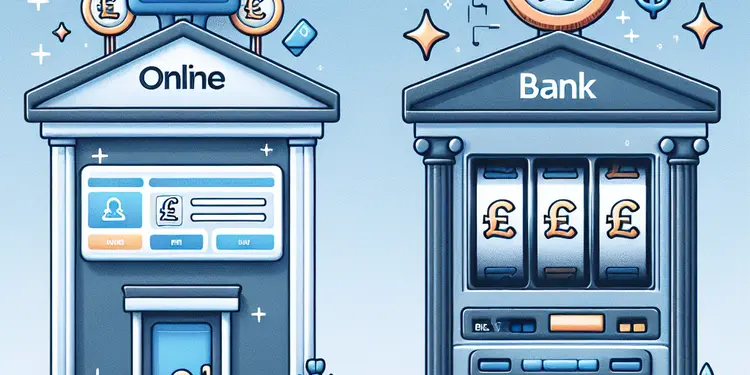
Are online banks cheaper than traditional banks?
Relevance: 42%
-
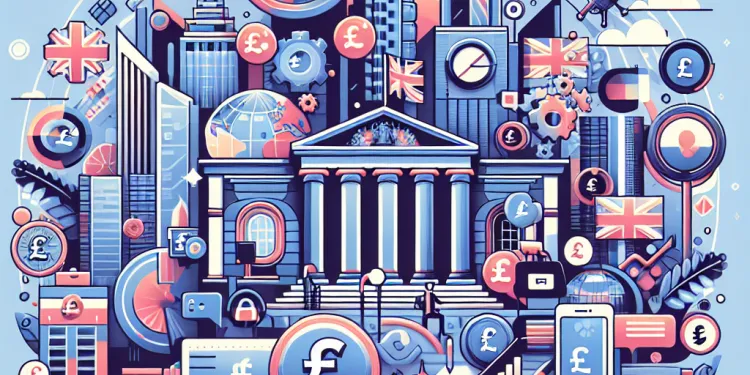
Can I use Monzo or Revolut for everyday banking?
Relevance: 38%
-
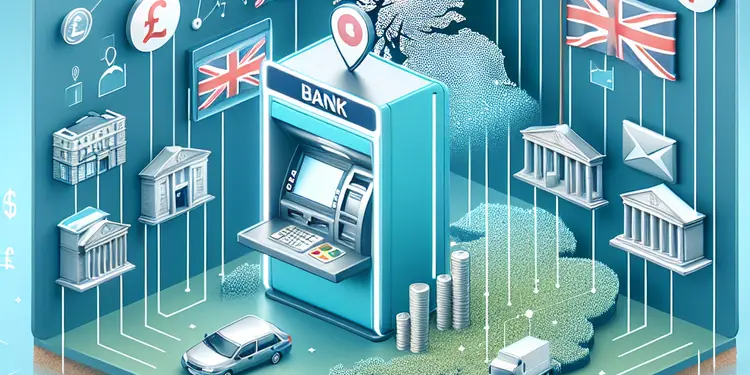
How important is it to consider the bank's ATM network when switching?
Relevance: 37%
-

How transparent are water companies regarding infrastructure improvements?
Relevance: 37%
-

Are there any fees to claim money back?
Relevance: 37%
-
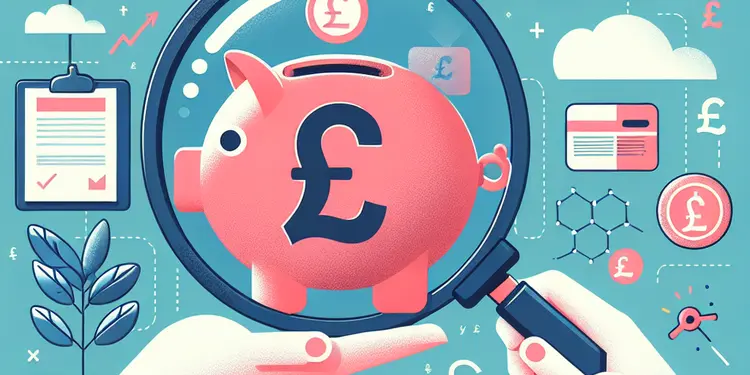
How can I compare banks to find the best deal?
Relevance: 37%
-

Can switching banks help me budget better?
Relevance: 36%
-

What's the difference between switching to a credit union versus a bank?
Relevance: 36%
-

Can I save money by switching my bank?
Relevance: 36%
-
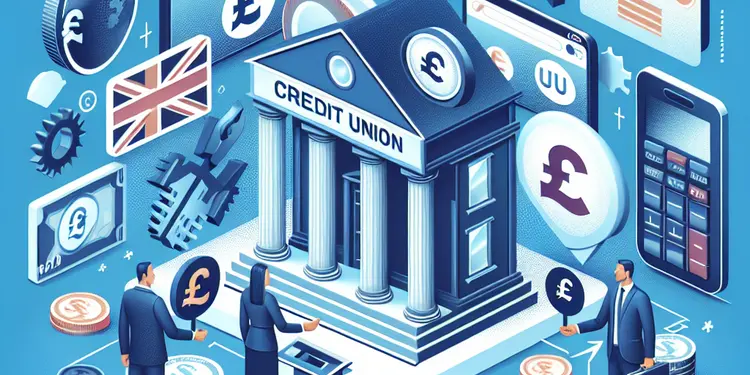
What's the difference between switching to a credit union versus a bank?
Relevance: 36%
-

How can I compare banks to find the best deal?
Relevance: 36%
-

How important is financial transparency in preventing disputes?
Relevance: 36%
-
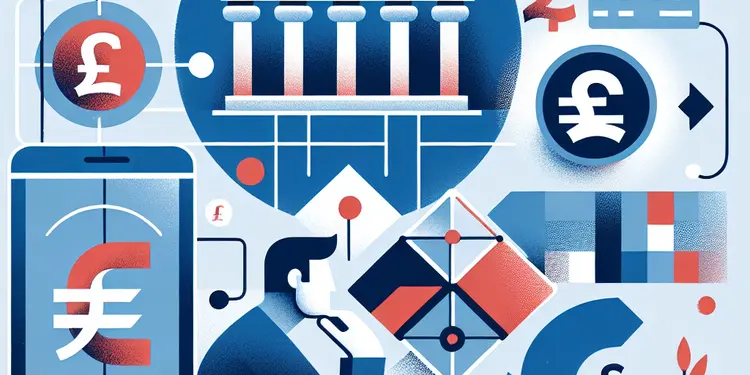
Can I save money by switching my bank?
Relevance: 36%
-
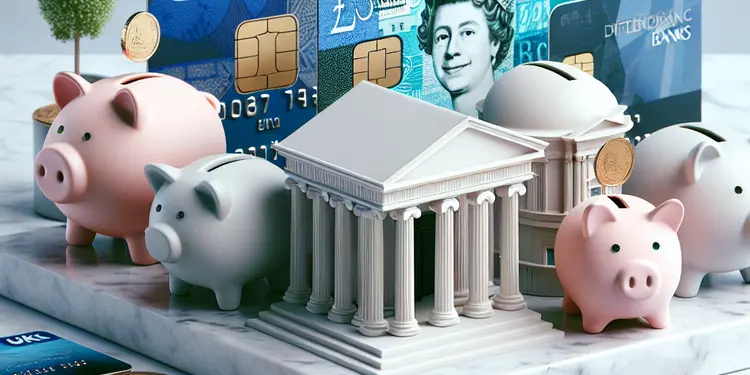
Are there benefits to having multiple bank accounts at different banks?
Relevance: 35%
Introduction to Transparency in Banking Fees
In recent years, technological advancements have significantly transformed the financial services sector, particularly in improving transparency in banking fees. In the UK, where consumers expect clarity and fair dealing, technology plays a vital role in shedding light on the often intricate structure of banking charges.
How Technology is Enhancing Fee Transparency
With the implementation of sophisticated digital platforms and tools, banks in the UK are now able to present their fee structures in a more transparent and user-friendly manner. Online banking platforms and mobile banking apps furnish consumers with instant access to fee details, enabling them to comprehend the charges related to various financial products and services.
Furthermore, the integration of machine learning algorithms allows these platforms to offer personalized fee forecasts and alerts. Customers can receive notifications regarding potential fees related to their banking habits, facilitating more informed decision-making and preventing unexpected charges.
Role of Open Banking
Open Banking, a UK-led initiative, mandates banks to open up their data to regulated third-party providers, facilitating enhanced competition and innovation. Open Banking ecosystems empower consumers by offering apps and services that aggregate and analyze financial data across multiple accounts, providing a comprehensive view of incurred and potential fees.
This approach also encourages third-party developers to create tools that demystify banking fees, helping customers choose products that offer better value based on their banking behaviors.
Blockchain Technology and Smart Contracts
Blockchain technology, with its immutable ledger, offers promising advancements in fee transparency. By employing blockchain, banks can record all transactional data in a transparent and secure manner visible to all network participants. This feature ensures that fee structures remain consistent and can be easily audited by regulators and consumers alike.
Smart contracts, another innovation within the blockchain domain, can automatically execute transactions and enforce terms transparently when predetermined conditions are met. This ensures that fees are applied fairly and eliminates ambiguities often associated with traditional banking contracts.
Challenges and Future Prospects
Despite these advancements, challenges remain in ensuring that all customers fully understand how technology helps decode banking fees. Not all consumers are tech-savvy, and the digital divide can hinder some from reaping the benefits of these technologies.
Nevertheless, as the UK banking sector continues to embrace technological innovation, the outlook for transparency in banking fees seems promising. Emerging technologies and regulatory frameworks are likely to further enhance clarity, ultimately fostering trust and customer satisfaction in financial services.
Conclusion
Technology is undeniably pivotal in enhancing transparency in banking fees by making information more accessible, understandable, and actionable. As banks and fintech innovators in the UK and beyond continue leveraging these advancements, consumers can look forward to a more transparent and customer-centric financial landscape.
Introduction to Clear Banking Fees
In the last few years, new technology has changed how banks work. This helps make it clear what fees banks charge. In the UK, people want to know and understand these fees. Technology helps show the details of these charges.
How Tech Makes Fees Clearer
Now, banks use special online tools to show fees in a simple way. Online banking and apps help people quickly see what fees they have to pay. This helps everyone understand the costs of different bank services.
Smart computer programs can also warn people about fees they might be charged. This helps people plan better and avoid surprises.
What Open Banking Does
Open Banking is a UK idea. It asks banks to share data safely with other companies. This sharing helps create new apps. These apps can show all fees from different bank accounts in one place.
This helps people find the best bank deals for the way they use money.
How Blockchain Helps
Blockchain is a special way to share information safely so everyone can see it. This helps make sure bank fees are fair and can be checked easily.
Smart contracts in blockchain can do deals automatically. They make sure fees are fair and clear. This stops confusion about what people owe the bank.
Challenges and the Future
Even with these new tools, not everyone understands how they work. Some people might not know how to use the technology. This can be a problem.
But as banks in the UK use more technology, fees will get clearer. New rules and tools will help make banks more trustworthy and keep people happy.
Conclusion
Technology helps make bank fees easy to understand. It gives people the information they need in a simple way. As banks keep using new ideas, people will see a clear and friendly banking world.
Frequently Asked Questions
How does technology improve transparency in banking fees?
Technology improves transparency in banking fees by providing digital platforms where detailed fee information is readily accessible to customers.
What role do mobile banking apps play in fee transparency?
Mobile banking apps allow customers to view and track all service charges in real time, ensuring they are aware of any fees associated with account activities.
Can online banking platforms enhance fee transparency?
Yes, online banking platforms offer comprehensive insights into fee structures, often through user-friendly interfaces that display the breakdown of charges.
How do digital notifications help with understanding banking fees?
Digital notifications alert customers to any fees immediately after transactions, helping them understand and manage the costs associated with their banking activities.
What technological tools help explain hidden banking fees?
Banks use digital calculators, fee simulators, and FAQ sections on their websites to explain potential hidden fees to customers.
Are there any apps that specifically focus on helping consumers track banking fees?
Yes, some third-party financial apps specialize in tracking fees and helping users manage and minimize banking costs by analyzing transaction data.
How does AI contribute to banking fee transparency?
AI analyzes transaction patterns to predict and explain likely fees, offering personalized insights into how customers can reduce costs.
What is the benefit of e-statements in the context of banking fees?
E-statements provide a detailed monthly overview of all transactions and fees, allowing customers to review and understand all charges.
How do chatbots assist with banking fee inquiries?
Chatbots can instantly answer questions about banking fees and provide explanations, helping customers get immediate clarification on charges.
Do banks use technology to offer customizable fee alerts?
Yes, many banks allow customers to set up customizable alerts for specific fees via email or SMS, enhancing awareness and control over charges.
How can blockchain technology enhance transparency in banking fees?
Blockchain technology can provide a tamper-proof and transparent ledger of all transactions, making it easier to verify the authenticity and accuracy of fees charged.
What advantages do digital comparisons offer for understanding banking fees?
Digital comparison tools help customers contrast fees across different banks, fostering informed decision-making and enabling cost-effective banking.
How does financial regulation technology aid in fee transparency?
Financial regulation technology helps ensure banks comply with transparency standards by monitoring fees and charges, protecting consumers from unexpected costs.
In what ways do online financial communities aid transparency in banking fees?
Online communities allow customers to share experiences and insights, increasing general awareness and understanding of banking fees.
How do personal finance management tools disclose banking fees?
Personal finance management tools categorize transactions and highlight fee-related costs, giving users a clear picture of where their money is going.
What impact does open banking have on fee transparency?
Open banking enables third-party apps to access bank data with consent, allowing for more competitive service options and clearer fee structures.
How can financial education platforms enhance understanding of banking fees?
Financial education platforms offer resources and courses that teach consumers about banking operations, including fee structures, enhancing comprehension.
What role does data analytics play in making banking fees transparent?
Data analytics helps banks identify and predict fee patterns, allowing them to present clearer and more accurate fee information to customers.
How does digital documentation contribute to transparency in banking fees?
Digital documentation ensures that all terms and conditions related to fees are easily accessible, providing customers with complete transparency.
Do digital contracts help in understanding banking fee commitments?
Yes, digital contracts specifically outline fee structures, helping customers understand any potential costs before agreeing to services.
How does technology help us understand bank fees better?
Technology makes it easier to see what banks charge you. Here’s how:
- Clear Information: Apps and websites show fees clearly, so you know what you’re paying.
- Alerts: You can get alerts on your phone when a fee is charged.
- Easy Comparisons: Tools help you compare fees from different banks to choose the best for you.
Suggestions:
- Use bank websites or apps to check your fees regularly.
- Ask someone you trust to explain any fees you don’t understand.
- Try a fee comparison tool online to find better options.
Technology helps people understand bank fees better. It uses digital tools like websites and apps to show clear information about the fees.
Here are some ways to make reading this easier:
- Use a computer or tablet to look at the information. It is often clearer on a bigger screen.
- Use apps or websites that read text out loud. This can help if you find reading hard.
- Ask someone you trust to help explain the information.
How do mobile banking apps help you understand bank fees?
Mobile banking apps let you see what your bank charges you.
You can check your fees anytime on these apps.
Try using tools like simple charts or guides to understand fees better.
Mobile banking apps let you see and check service charges right away. This helps you know about any fees when you use your account.
Can online banking make fees easier to understand?
Yes, online banking websites show you the fees you have to pay. They use simple designs to help you see and understand all the charges.
How do digital notifications help you understand bank fees?
Digital notifications are messages you get on your phone or computer.
They tell you about bank fees. This helps you know when you have to pay money.
Some tools that can help you are:
- Bank Apps: These apps show you fees and alerts.
- Text Messages: Your bank can send you fee alerts by text.
- Email Alerts: Get a message in your email about fees.
Digital messages tell customers about fees right after they use their bank cards. This helps them know what they're spending and how much it costs.
What tools can help explain hidden bank fees?
Some apps and websites can show you hidden bank fees. They are like helpers for your money. Here are some things that can help:
- Budgeting Apps: These apps help you see where your money is going. They can show you if there are any extra fees.
- Banking Apps: Your bank’s app might have a section for fees. Check there to find out more.
- Comparison Websites: These websites let you compare fees from different banks. This can help you choose the best bank for you.
- Online Calculators: These tools help you add up the fees. They make it easy to see how much you are paying.
If you find it hard to read, ask someone to help you, like a friend or family member.
Banks use digital tools to help people understand extra fees. They have online calculators, fee helpers, and question-answer sections on their websites.
Are there any apps to help with tracking bank fees?
Do you want to know if there are apps to help you see bank fees? Bank fees are the extra money banks might charge you for different things.
You can use special apps to keep an eye on these fees. These apps can make it easier to know when your bank charges you.
Try using an app to help you with your bank accounts. Look for apps that track fees. They can show you what fees you have to pay.
Yes, there are special apps that can help you see and keep track of your bank fees. These apps look at your money transactions and help you spend less on banking fees.
How does AI help people understand bank fees better?
AI can help people see and understand bank fees more easily. Here are some ways it can help:
- AI can sort through lots of information fast to show the important parts.
- AI can explain fees in simple words that are easy to understand.
- AI can help people compare different bank fees.
If you want to learn more about bank fees, you can use helpful tools like:
- Apps: Some apps can show you how much you pay in bank fees.
- Websites: Visit websites that explain bank fees in simple language.
- Bank Helpers: Contact your bank’s customer service for help.
AI looks at how you spend money. It helps guess what fees you might have to pay. It also gives you tips on how to save money.
Why are e-statements good for banking fees?
E-statements are online bank statements.
Here is why they are good:
- Save Money: You might avoid extra fees.
- Easy to Find: You can check them on a computer or phone.
- Better for the Planet: No paper means less waste.
- Safe: They are secure and private.
Ask someone to help you set up e-statements if you need.
E-statements show what happens to your money each month. You can see all the things you buy and any extra costs. These statements help you understand your spending better.
How can chatbots help with questions about bank fees?
Chatbots are computer programs that talk with people. They can help you ask questions about bank fees.
If you don't know what a bank fee is, a chatbot can explain. A bank fee is money the bank charges you for a service, like using your account.
You can type your question to the chatbot. It will answer you back. This can help you understand what fees you might have to pay.
Some people find chatbots easy to use. You won't have to wait in line or on the phone for help. You can use a computer, tablet, or smartphone to talk with a chatbot.
If reading is hard, you can have someone help you. They can read your question and the chatbot's answer out loud.
Chatbots can quickly answer questions about banking fees. They help customers understand the charges right away.
Do banks use technology to send custom fee alerts?
Banks can use computers and other technology to send you alerts about fees.
Here is how it works:
- You can set up alerts to tell you about money charges.
- The alerts can be sent to your phone or email.
- You choose what alerts you want to get.
Tools that might help you:
- Ask someone to help set up alerts with you.
- Use apps that make setting up alerts easy.
Yes, many banks let you set up alerts. These alerts can be sent to you by email or text message. They help you keep track of fees and stay in control of your money.
How can blockchain help people see banking fees more clearly?
Here is the simple way blockchain can help with banking fees:
- Blockchain is like a digital book where everyone can see the same information.
- It shows all the steps in a process, so nothing is hidden.
- In banks, this can mean showing exactly what fees you pay and why.
If you want help understanding this, you can:
- Talk to someone you trust like a family member or a friend.
- Use apps or websites that explain things in simple ways.
Blockchain is a special kind of computer record book. It keeps a safe and clear list of everything that happens. It helps you check if the fees you pay are correct and fair.
How can digital tools help you understand bank fees?
Using digital tools can make it easier to see how much banks charge. Here are some ways they help:
- They show prices in a clear way.
- You can compare different banks quickly.
- They help you find the best deal.
- You can use apps or websites to do this.
- These tools save you time and help you make good choices.
Digital tools help people look at fees from different banks. This helps them make smart choices and save money.
How does money rule technology help people understand costs better?
Money rule technology can help people see all the costs clearly. It shows what you are paying for in a simple way. This makes it easier to know where your money goes.
Here are some tips to understand costs:
- Use apps that help show where you spend money.
- Ask someone you trust to explain fees to you.
- Look for clear charts or pictures that show costs.
These can help you feel better about handling your money.
Technology helps make sure banks follow the rules. It watches fees and charges so people don’t have surprise costs. This keeps everyone safe and fair.
How do online money groups help people see bank fees clearly?
Online money groups can help you understand bank fees better. These groups talk about their own experiences with banks. They share tips on how to find hidden fees.
Here are some helpful tools and ideas:
- Community Forums: Join forums where people talk about bank fees.
- Blogs: Read simple articles that explain bank fees.
Online groups help people talk about their bank fees. This helps everyone learn more about fees.
How do money tools show bank fees?
Money tools can help you see the fees your bank charges. These tools use simple ways to show you the costs.
Here are some ways that can help:
- Use apps that show a list of fees.
- Look for pictures or charts that show the fees.
- Read short, clear notes about fees.
These things can make it easier to know about bank costs.
Money tools help you see where you spend your money. They sort your spending into groups and show any extra costs or fees. This helps you understand where your money goes.
How does open banking change how we see fees?
Open banking lets other apps use your bank information, but only if you say it's okay. This can help you get better services and see fees more easily.
How can learning about money help people understand bank fees?
Learning about money is important. It can help you understand how bank fees work.
Banks sometimes charge money for their services. This is called a bank fee.
Learning platforms can show people how to manage their money and savings better.
They can use simple words and pictures to explain bank fees.
Watching videos or playing games can make learning fun!
If you need help understanding, you can use tools like a calculator or ask someone you trust.
Money learning websites help people understand how banks work. They show you about bank fees and help you learn more.
How does data help us see bank fees clearly?
Data helps us understand what we are paying for when we use a bank. It makes bank fees easy to see and understand. Here is how it helps:
- Shows Details: Data gives us the details about each fee. This way, we know what we are paying for.
- Finds Patterns: It can show us how often we pay fees and why.
- Makes Comparisons: We can compare fees from different banks to find the best choice.
Tools and Tips:
- Use a calculator to add up fees.
- Check bank statements regularly to see all charges.
- Ask someone you trust to help explain your bank fees.
Data analytics helps banks understand and guess fee patterns. This way, they can explain fees more clearly and correctly to customers.
How do digital records help you see bank fees clearly?
Banks sometimes charge fees. Digital records are online information about these fees. They help because:
- You can see all the fees easily.
- They show when and why the fees are charged.
- You can check them anytime on a computer or phone.
Ask a helper or use tools to read if you need support.
Digital documents help people see important details about costs. This way, everyone knows what to expect and everything is clear.
Do online agreements help understand bank fees?
Yes, digital contracts clearly show what you have to pay. This helps you know the costs before you say "yes" to the services.
Useful Links
This website offers general information and is not a substitute for professional advice.
Always seek guidance from qualified professionals.
If you have any medical concerns or need urgent help, contact a healthcare professional or emergency services immediately.
Some of this content was generated with AI assistance. We’ve done our best to keep it accurate, helpful, and human-friendly.
- Ergsy carfully checks the information in the videos we provide here.
- Videos shown by Youtube after a video has completed, have NOT been reviewed by ERGSY.
- To view, click the arrow in centre of video.
- Most of the videos you find here will have subtitles and/or closed captions available.
- You may need to turn these on, and choose your preferred language.
- Go to the video you'd like to watch.
- If closed captions (CC) are available, settings will be visible on the bottom right of the video player.
- To turn on Captions, click settings .
- To turn off Captions, click settings again.
More Items From Ergsy search
-

How does technology help in enhancing transparency in banking fees?
Relevance: 100%
-

Why is there a call for greater transparency in banking fees?
Relevance: 89%
-

What initiatives are in place to address banking fee transparency?
Relevance: 86%
-

Calls for Greater Transparency in Banking Fees as Complaints Rise
Relevance: 84%
-

How can banks improve transparency regarding their fees?
Relevance: 83%
-

How can government policies influence transparency in banking fees?
Relevance: 77%
-

What actions are consumer rights groups taking regarding banking fee transparency?
Relevance: 74%
-

What role do regulatory bodies play in fee transparency?
Relevance: 66%
-

How do banking fees impact financial inclusion?
Relevance: 61%
-

What feedback do customers give regarding banking fees?
Relevance: 59%
-

What are the consequences for banks not complying with transparency standards?
Relevance: 59%
-

Are there specific banking services more prone to opaque fee structures?
Relevance: 58%
-

Do online banks have lower fees than traditional banks?
Relevance: 56%
-

What role do customer service representatives play in fee transparency?
Relevance: 55%
-

Do gig workers have the right to transparency in pay and fees?
Relevance: 54%
-

Why are some banking fees unexpectedly high?
Relevance: 54%
-

Do all banks have the same fee structures?
Relevance: 54%
-

Can customers dispute unexpected banking fees?
Relevance: 54%
-

What fees should I avoid when choosing a new bank?
Relevance: 47%
-

How can disputes over banking fees be resolved effectively?
Relevance: 47%
-

What fees should I avoid when choosing a new bank?
Relevance: 47%
-

What are some examples of hidden fees in banking?
Relevance: 47%
-

How can consumers protect themselves from hidden banking fees?
Relevance: 46%
-

Are online banks cheaper than traditional banks?
Relevance: 46%
-

Are there any hidden fees with Monzo or Revolut?
Relevance: 45%
-

Are there any hidden fees I should be aware of?
Relevance: 42%
-

Are online banks cheaper than traditional banks?
Relevance: 42%
-

Can I use Monzo or Revolut for everyday banking?
Relevance: 38%
-

How important is it to consider the bank's ATM network when switching?
Relevance: 37%
-

How transparent are water companies regarding infrastructure improvements?
Relevance: 37%
-

Are there any fees to claim money back?
Relevance: 37%
-

How can I compare banks to find the best deal?
Relevance: 37%
-

Can switching banks help me budget better?
Relevance: 36%
-

What's the difference between switching to a credit union versus a bank?
Relevance: 36%
-

Can I save money by switching my bank?
Relevance: 36%
-

What's the difference between switching to a credit union versus a bank?
Relevance: 36%
-

How can I compare banks to find the best deal?
Relevance: 36%
-

How important is financial transparency in preventing disputes?
Relevance: 36%
-

Can I save money by switching my bank?
Relevance: 36%
-

Are there benefits to having multiple bank accounts at different banks?
Relevance: 35%


